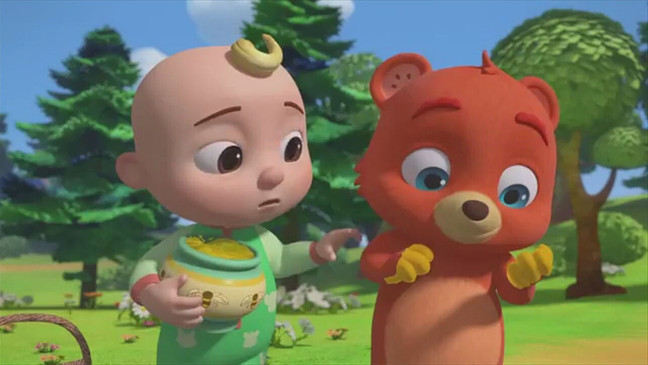Why Is CoComelon Bad? Exploring the Concerns Behind the Popular Show

If you’re a parent, caregiver, or educator, you’ve probably heard of CoComelon. It’s one of the most-watched children’s programs on YouTube and Netflix, featuring bright colors, catchy songs, and a cast of animated kids and animals singing about everyday life. But as its popularity has grown, so have the questions and concerns. One question that keeps popping up: why is CoComelon bad?
Now, let’s be clear—CoComelon isn’t evil or harmful by design. In fact, its creators say the goal is to help children learn and enjoy music. But many experts, parents, and psychologists have raised valid points about how this show might not be as helpful as it seems. So, in this article, we’ll explore the full picture behind why is CoComelon bad, using trusted sources, real experiences, and scientific insights.
Understanding the Appeal of CoComelon
Before we dive into the concerns, it’s important to understand why kids love CoComelon so much.
What Makes It So Popular?
- Bright colors and fast animation
- Repetitive, sing-along songs
- Familiar topics like bedtime, brushing teeth, and family fun
- Available everywhere—YouTube, Netflix, and more
- Episodes are short, easy to binge
It’s designed to hold a toddler’s attention. And that’s part of the problem.
Why Is CoComelon Bad? The Main Concerns
The phrase why is CoComelon bad may sound harsh, but it really means: what could be improved or what should parents watch out for? Let’s look at some of the top concerns.
Screen Time Addiction
Many parents notice their kids throwing tantrums when CoComelon is turned off. That’s not just frustration—it could be a sign of overstimulation or even screen dependency.
- Fast-paced scenes can cause dopamine spikes in the brain
- Constant visual changes may prevent calm, focused play
- Addictive viewing patterns make it hard to transition to real-world activities
Overstimulation and Attention Issues
Experts worry about how the show’s rapid editing and high-energy scenes may affect brain development.
| Stimulus | Effect on Child |
| Bright colors | Constant visual excitement |
| Rapid transitions | Harder to develop focus |
| Loud songs | May trigger sensory overload |
| Repetition | Less space for creativity |
Over time, this kind of content could impact how young children handle boredom, solve problems, or concentrate in a classroom.
The “Fast Food” of Children’s Content
Some child development specialists compare CoComelon to junk food—not because it’s bad all the time, but because it lacks essential ingredients for healthy growth.
What’s Missing?
- Real storytelling that helps develop empathy and understanding
- Creative pauses that allow thinking and imagination
- Two-way interaction, unlike traditional play or reading time
- Emotional range (most characters are constantly smiling or singing)
Think about it: if all a child eats is candy, they might stay full, but they won’t grow strong. The same idea applies to content—CoComelon might entertain, but it doesn’t always nourish a child’s mind.
Comparing CoComelon to Other Shows
Let’s take a quick look at how CoComelon stacks up against other popular educational shows.
| Show | Style | Pace | Educational Value |
| CoComelon | Animated, musical | Very fast | Low to medium |
| Bluey | Animated, storytelling | Medium | High |
| Daniel Tiger’s Neighborhood | Soft animation, musical | Slow and thoughtful | High |
| Sesame Street | Live-action & animation | Varied | Very high |
Shows like Bluey and Sesame Street include emotional learning, problem-solving, and slower pacing—all things kids benefit from.
Emotional Disconnect and Lack of Real Conversations
Here’s another issue that answers why is CoComelon bad: the show often skips over realistic emotions and conversations. Most characters smile constantly, even in stressful situations.
What This Teaches Children:
- Emotions should be hidden or ignored
- Conflict doesn’t need communication
- Everyone is always happy
In real life, kids need to understand and express a full range of emotions. Watching shows that model emotional honesty helps them navigate friendships, disappointments, and self-control.
Too Much Repetition, Too Little Creativity
While repetition helps learning, CoComelon tends to overdo it. Many songs repeat the same phrases over and over, which can limit a child’s ability to think creatively.
Why Repetition Can Be Harmful:
- Reduces vocabulary growth
- Limits problem-solving skills
- Discourages imaginative play
- Builds passive rather than active learning
Children learn best when they’re engaged in active, open-ended play—not just watching similar videos on loop.
Delayed Speech and Interaction
Some parents have noticed that their toddlers speak less or engage less when regularly watching CoComelon. While it hasn’t been proven as the direct cause, here’s what may be happening:
- The show doesn’t encourage back-and-forth interaction
- Kids become used to passive viewing
- Less real-world language use at home
- Fewer chances for conversation and questions
Young children learn language through talking, listening, and playing. If screen time takes over these moments, development can slow down.
Behavioral Changes After Viewing
Have you ever noticed a toddler acting more hyper, fussy, or even aggressive after watching CoComelon? You’re not alone.
Reported Changes:
- Difficulty calming down after screen time
- Mood swings or sudden crying
- Refusal to do quiet or independent tasks
- Need for constant stimulation
That doesn’t mean CoComelon is “bad” in every way, but it does mean it might need to be balanced with calmer activities and face-to-face time.
What Do Experts Say?
Child psychologists, pediatricians, and speech therapists have begun weighing in on why CoComelon might not be the best choice for long-term viewing.
Expert Opinions:
- Dr. Nicole Beurkens, child psychologist: “It overstimulates young brains, making it harder for them to stay calm and focused in real life.“
- American Academy of Pediatrics: “Avoid screen time for children under 18 months, except for video chatting.“
- Speech-language pathologists: “Passive shows may reduce the amount of real conversation children experience.“
These insights help confirm that the concerns about why is CoComelon bad aren’t just opinion—they’re backed by research and observation.
What Can Parents Do Instead?
The good news? There’s no need to panic. Watching CoComelon in moderation isn’t likely to hurt your child. The key is balance and engagement.
Healthy Alternatives and Practices:
- Limit viewing to 20–30 minutes per day
- Watch together and talk about what’s happening
- Choose slower-paced, more interactive shows
- Encourage music time without screens—like singing nursery rhymes
- Provide open-ended toys like blocks, books, and art supplies
Also, remember that kids learn best from you. Face-to-face play, stories, and family bonding can do more than any screen ever could.
Wrapping It Up: Why Is CoComelon Bad?
So, why is CoComelon bad? It’s not because it has bad intentions. It’s because it’s not always the best tool for healthy brain development in young kids.
With its fast pace, overstimulation, and passive viewing style, CoComelon may affect attention, creativity, and emotional learning when used excessively. But with the right balance and strong parental guidance, its effects can be minimized.
By staying informed, making thoughtful choices, and staying involved in what your kids watch, you’ll help them grow into thoughtful, curious, and joyful learners.
In the end, CoComelon isn’t the enemy—it’s just a reminder that not all screen time is created equal. When in doubt, turn off the screen, grab a book, or sing a song together. It’s those everyday moments that build smarter, kinder, and more confident kids.
That’s the real answer to why is CoComelon bad—and how we can make it better.





